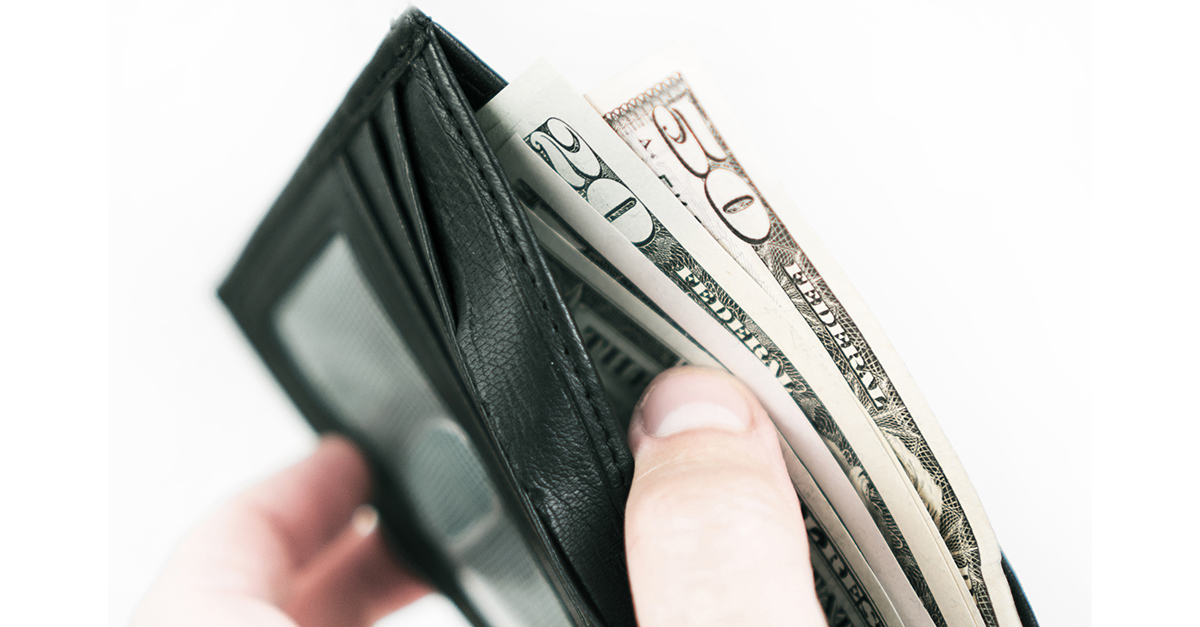All the experts seem to say the same thing: “If you want to save money, stop spending it.”
Videos by Rare
Stop buying lunch. Don’t buy a coffee in the morning. Cancel your cable.
They make it sound so easy to save money!
But I like buying lunch. I’m a zombie without my morning coffee. And I really enjoy Game of Thrones (and can’t stand seeing spoilers on Facebook).
RELATED: Why saving money is more than just “cutting back”
What if there was a way you could spend, get more out of life and still save in the long run?
Well, there is, and I call it my Upgrade and Save strategy. There are many areas of your life in which you can save money by spending it. If you make an upfront investment, it can mean paying less in the future.
Upgrade and save with coffee
A few years ago, my wife purchased a Nespresso coffeemaker for my birthday. It’s a lot like a Keurig except it makes phenomenal single- and double-shot espressos. The pods are single-use, cost around 50 cents to a dollar each and turn me from a groggy mess into someone who’s ready to take on the day.
The coffee maker wasn’t cheap. You can get one for less than $100, but some of the higher-end models, which have features like the ability to make frothy milk, can cost close to $500. It’s not as cheap as a simple drip coffee maker, but it’s far less expensive than visiting a coffeehouse every morning.
If you have one coffee each day with the low-end Nespresso machine, it’ll cost you $465 a year: $100 for the unit and $365 for the coffee pods. A $3 coffee each day will run you $1,095 a year. That’s more than twice as much.
Experts would have you believe the best solution is to buy a drip coffee maker for $20, a five-pound canister of coffee for $15, and 100 coffee filters for $2. But the reason this is more likely to fail is because it will bring far more complexity into your life. You’ll create more steps in your morning or nighttime routine, which you’ll likely forget.
RELATED: There’s coffee, and then there’s this decadent Vietnamese coffee
What will happen when you run out of coffee filters? Or coffee grounds? You’ll stop at Starbucks and buy a cup.
We enjoy our coffee maker because we put in a pod, turn it on and can drink our coffee in about 30 seconds. No pot, no filters, no programming — it’s easy.
Other ways to spend and save
You can find these scenarios everywhere in your life — opportunities to make a small upfront investment so you can cut down the costs later on. Coffee has been an easy target ever since David Bach coined the term “latte factor,” but that’s not the only area where you can save money.
If you drive a car, you know you need to change the oil every 3,000 to 5,000 miles. If you switch from conventional oil to synthetic oil, you’ll pay more for the oil but will change it less often. My car needs an oil change every 5,000 miles when it’s using conventional oil. But it can run 10,000 miles when I use synthetic oil, making synthetic oil less expensive.
Another example: CFL and LED bulbs are more expensive, but they last longer and use less electricity. That’s fewer light bulb changes, especially for those hard-to-reach places, and a slightly lower electricity bill. (You can see 11 more ways to lower your electric bill here.)
Saving money isn’t everything — improving your quality of life is important too. Invest in the things you use often, like your mattress. If you buy a quality mattress and even higher quality bedding, you’ll get a strong start every day.
Finally, put the money you save toward the future. If you buy a coffee maker and stop paying $3 per cup, you can put that savings toward another investment. You could spend it on synthetic oil or on upgrading your bed. Just don’t spend it elsewhere without careful planning.
The experts always seem to say to it’s smarter to cut things out, but that’s unreasonable. Make an investment in your life and see how it pays off in the long run.
More from Credit.com
- The Best Easy-to-Get Credit Cards
- The Best & Worst Airports in the U.S.
- How to Get a Credit Card After Bankruptcy
This article originally appeared on Credit.com.



